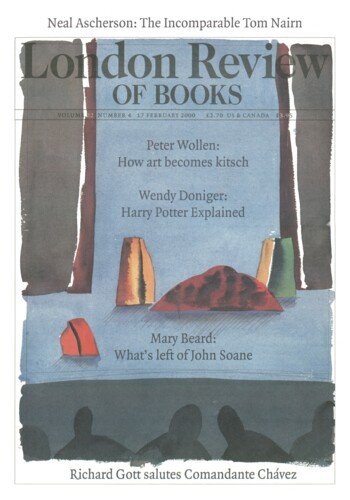Seizing the Senses
Derek Jarrett, 17 February 2000
‘Mr Burke will live,’ declared the Times two days after he had died, ‘as long as strength of imagination and beauty of language shall be respected by the world.’ By the time the Oxford edition of Burke’s Select Works came out in 1876 there was more for the world to respect. ‘Burke will always stand forth as a man whose political knowledge was complete,’ wrote the editor, E.J. Payne. ‘He was therefore, though a reformer, incapable of rash and inconsiderate action. The man who has arrived at a view of the whole plan of civil society, and taken in the mutual relations and dependencies of distant parts, is not in danger of being consumed by an irrational zeal for or against any established element in that society.’ A few years later, in his History of England in the 18th Century, W.E.H. Lecky found yet more to respect and admire:‘

